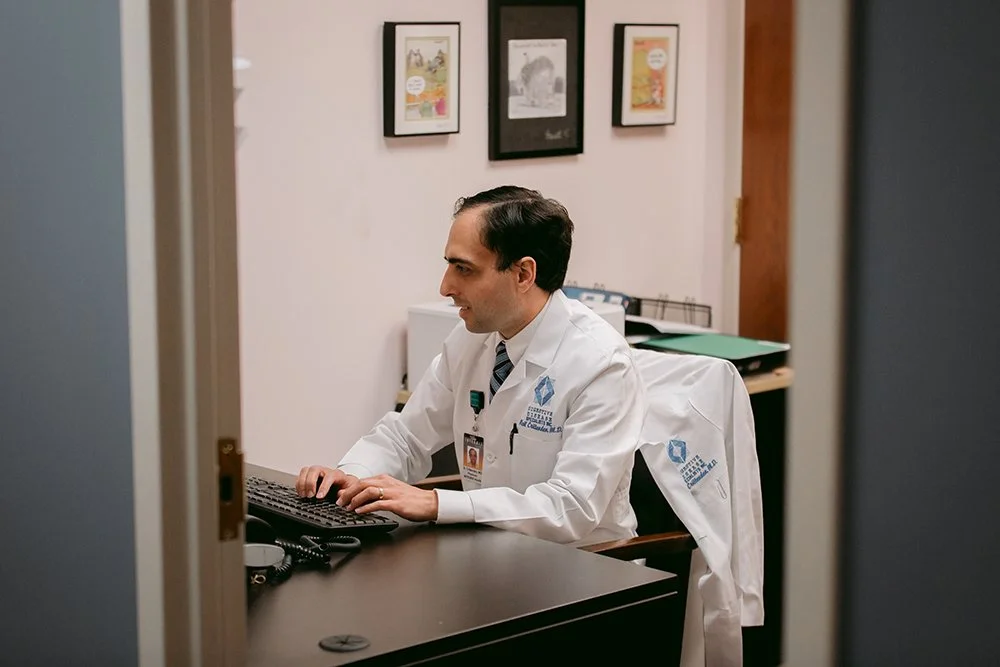What Are the Signs, Causes, Risks, & Cure of Gallstones?
Gaining a clear understanding of gallstones and their management is crucial. These small deposits can form in your gallbladder without causing symptoms. Yet, when complications arise, they demand immediate attention. It's vital to learn about their formation, potential risks, and the various treatment approaches accessible in Edmond. At the core of effective management is the expertise of renowned gastroenterologists in Edmond, OK, who help you through diagnosis and treatment.
The Basics of Gallstones
Bile, produced by the liver, is stored in the gallbladder. As we eat, our gallbladder secretes bile into the small intestine to aid digestion. Sometimes, this bile can harden and form silent deposits called gallstones, often lurking unnoticed in the gallbladder for years. However, if a stone lodges in a bile duct, it can lead to severe complications and discomfort. Understanding their nature and how they form is essential for prevention and management. A gastroenterologist can offer comprehensive insights and treatment options.
Identifying Gallstone Symptoms
While many individuals with gallstones experience no symptoms, those who do might encounter severe abdominal pain. This is mainly in the upper right quadrant of the abdomen or below the breastbone. This pain can extend to the right shoulder or back. Other symptoms include nausea and vomiting, which are signals that a gastroenterologist should evaluate the situation to prevent further complications.
Risk Factors for Gallstones
The likelihood of developing gallstones increases significantly with age, particularly for those over forty. Modern diets high in cholesterol are also linked to a higher incidence of gallstones. Women are more susceptible than men to this condition. Lack of physical activity and obesity further increase the risk, with a clear correlation noted with higher body mass indices or BMI. Additionally, gallstone disease often appears alongside metabolic disorders such as metabolic syndrome, diabetes, dyslipidemia, and hyperinsulinemia or insulin resistance.
Gallstone Treatment By Gastroenterologists
If gallstones cause symptoms, treatment might be necessary. The treatment approach depends on the symptoms and diagnostic results. In contrast, many with asymptomatic gallstones require no treatment. An experienced gastroenterologist can determine the most appropriate treatment for you.
Cholecystectomy, the removal of the gallbladder, allows bile to flow directly from the liver into the small intestine. Post-surgery, patients may spend three to five days in the hospital, with a total recovery spanning four to six weeks.
Alternatively, oral medications can dissolve gallstones over months or years, but discontinuation may lead to recurrence. Medications for gallstones are typically reserved for individuals who cannot undergo surgical procedures.
For those who qualify, laparoscopic cholecystectomy is performed with small abdominal incisions to insert surgical tools and a camera, using carbon dioxide to create necessary space. Most individuals return to normal activities within one to two weeks and may go home the same day, though an overnight hospital stay is sometimes needed.
Maintaining Health to Prevent Gallstones
Maintaining a healthy weight through regular exercise significantly lowers the risk of developing gallstones. A balanced diet rich in fruits, peas, legumes, and whole grains, including whole wheat bread, oats, and brown rice, is crucial. Regularly consuming nuts like peanuts or cashews and ensuring at least five servings of fresh fruits and vegetables daily also contribute to gallstone prevention. A diet that is moderate in calories, fiber-rich, and low in cholesterol & fat supports maintaining a healthy weight. Including moderate alcohol intake, low-fat dairy products, and lean proteins from fish and poultry further improves overall health.
Understanding Gallstone Complications
Complications from gallstones can be severe, including bowel blockages that lead to inflammation of the pancreas or bile ducts. In extreme cases, they can increase the risk of cancer in the bile ducts or gallbladder. Awareness and early intervention by a gastroenterologist are essential to managing these risks effectively.
Frequently Asked Questions About Gallstones
Can gallstones dissolve on their own?
Yes, small gallstones can sometimes dissolve without surgical intervention.
What methods help remove small bladder stones?
Drinking lots of water and fluid intake can help in flushing small stones from the bladder.
Are medications effective in dissolving gallbladder stones?
Medications containing bile acids, such as chenodiol and ursodiol, can dissolve small cholesterol-based gallbladder stones. However, these treatments are infrequently used for managing gallbladder issues.
Connect with Digestive Disease Specialists Today!
Digestive Disease Specialists, Inc. is committed to your digestive health. Our team of expert gastroenterologists in Edmond, OK, is here to provide comprehensive care and help you in complete recovery. Contact us today to discuss your symptoms and book an appointment.
**Disclaimer: This blog content does not offer a doctor's advice and creates no relationship between any patient and care provider.

